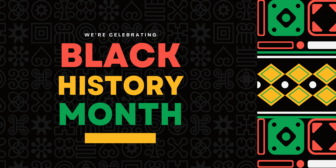Gandhi Today
“Somewhere there’s a sweet spot, that produces enough without tipping over into the hyper-individualism that drives our careening, unsatisfying economy. The mix of regulation and values that might make such self-restraint more common is, of course, as hard to create in China as in the United States; far simpler just to bless an every-man-for-himself economy and step aside. But creating those values, and the laws and customs that will slowly evolve from them, may be the key task of our time here and around the world.” Bill McKibben, Deep Economy
140 years today Mohandus Gandhi was born in Gujarat province in India. I didn’t learn this from the New York Times, CNN, or any other mainstream media source. I didn’t learn about it from progressive media outlets, although it is very possible that one or more of them publicized it and I missed it.
I learned about this as a result of being invited to speak yesterday at William Patterson University in northern New Jersey by a professor who organized a program about Gandhi’s relevance for today. Thanks to Balmurli Natrajan, Director of the Gandhian Forum for Peace and Justice, I’ve spent the last few days reflecting on this question.
When I was asked this question directly at yesterday’s forum, what came to mind is this: Gandhi is important, is of continuing relevance, because he wasn’t just a great, if imperfect, leader of India’s successful struggle for independence from colonial Britain. He is important because he understood that it was necessary for him personally, and for his people, to be about the process of personal and cultural change if they were to have a chance of truly lasting, truly revolutionary change, in the best sense of the term.
Gandhi did his best to live a life which reflected the values of justice and love which he understood were central to the teachings of all great spiritual leaders. He went on fasts that were directed not just against the British but for his own people, calling upon them to refuse to mimic English violence and repression in their struggle for independence.
The words of Gandhi that I have used most often over the years are these: “Fasting is the sincerest form of prayer.” I’ve used them as I’ve learned their truth, as I’ve learned about prayer, during long fasts that I’ve undertaken in connection with the campaign to free Leonard Peltier, against the Iraq war and for strong government action to address the climate crisis.
There’s another fast very much in the Gandhian spiritual and political tradition that will be taking place about a month from now, a Climate Justice Fast (http://www.climatejusticefast.org). This is a fast initiated by young people in Australia, Europe and elsewhere specifically directed at the leaders of the world’s governments as they move toward the Dec. 7-18 international meeting in Copenhagen, Denmark to try to come up with a stronger climate treaty than the Kyoto Protocol. As I write, things are not looking good at all that they will do what is needed.
Anna Keenan, youth climate activist and one of the initiators of this fast, wrote yesterday about Gandhi. She began with a quote of his, that “the world has enough for everyone’s needs but not for everyone’s greed.” She went on to “share another great Gandhi quote:




